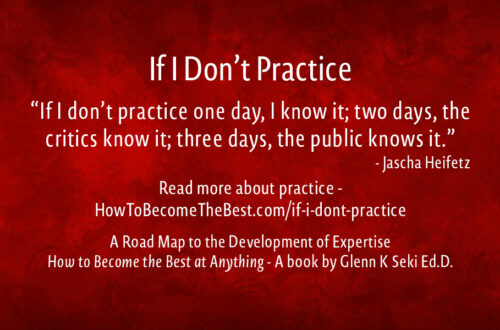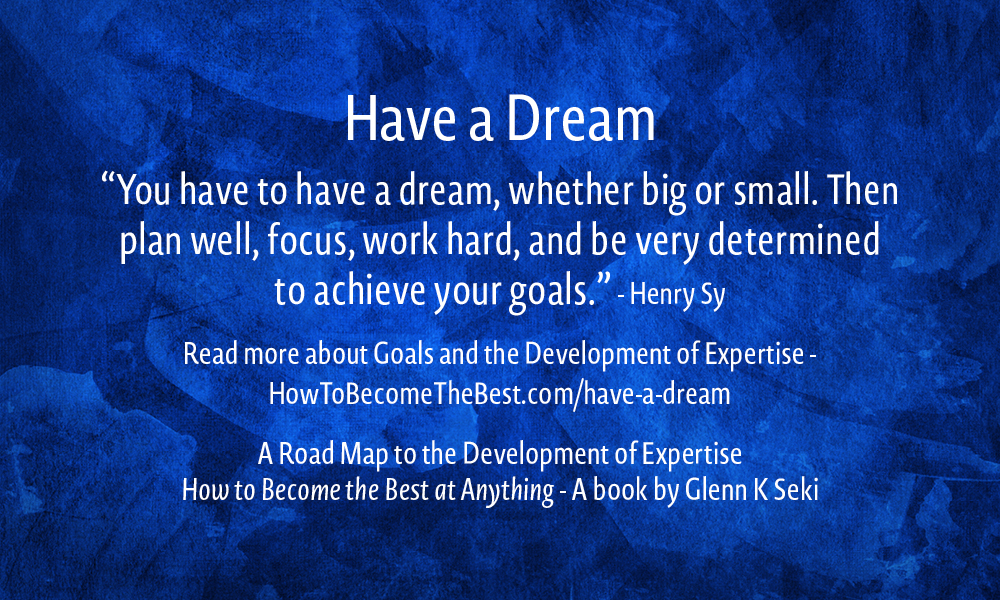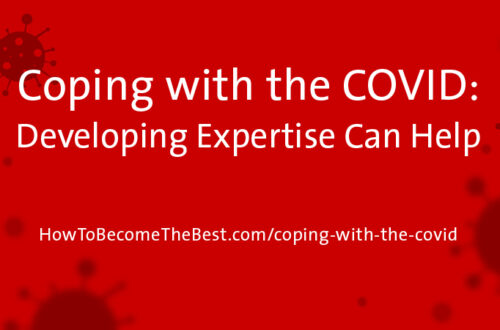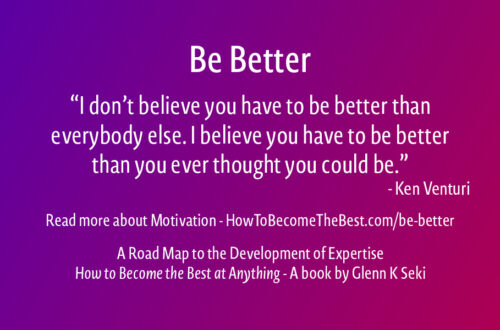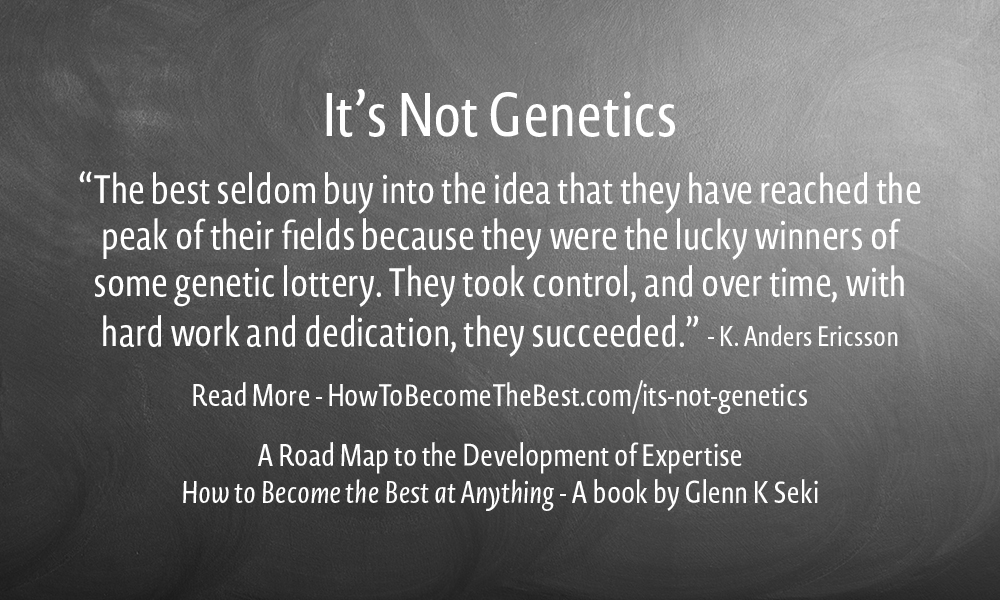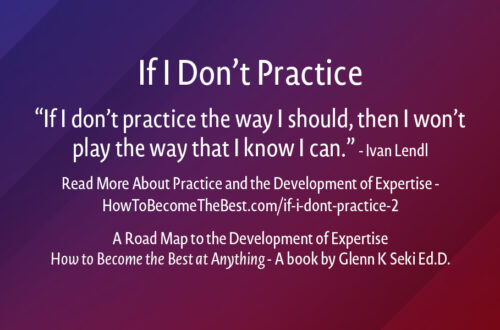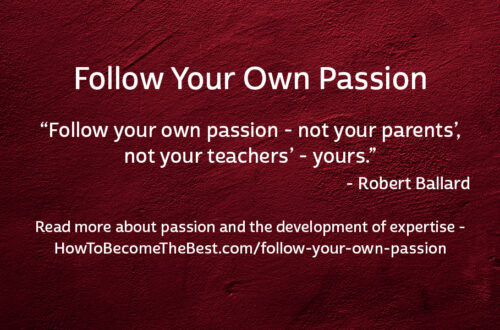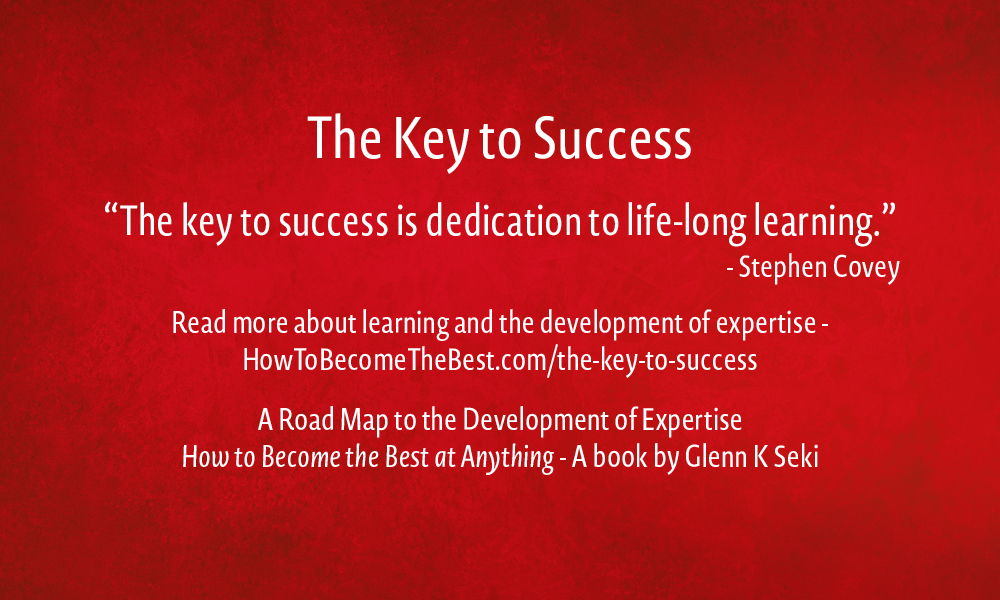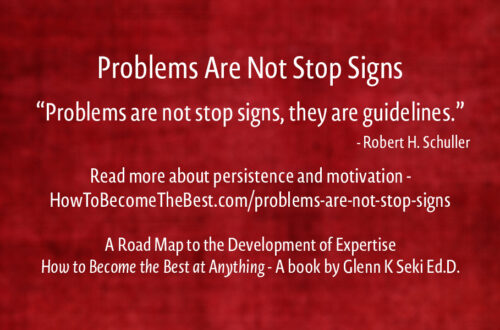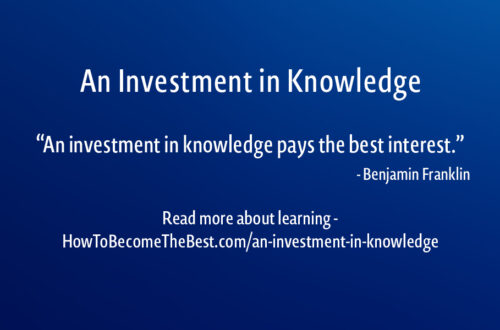“When you reach the end of your rope, tie a knot in it and hang on.” – Franklin D. Roosevelt *** Persistence and Motivation An excerpt from How To Become The Best at Anything, Chapter 9, Persistence, Motivation, and More About Your Path “Keep practicing no matter what. It will take years, you know this, so you have to keep practicing. You have to keep practicing getting better every time you practice. This is a very hard thing to do. You will get tired, bored, and frustrated. It is hard to keep your focus while practicing. I heard a story about John Wooden (often considered one of the greatest college…
-
-
Have a Dream
“You have to have a dream, whether big or small. Then plan well, focus, work hard, and be very determined to achieve your goals.” – Henry Sy *** An excerpt from How To Become The Best at Anything, Chapter 6, A Goal and a Plan “You need to have a specific ultimate goal. Let’s say you want to win an Olympic gold medal in swimming in the 200-meter freestyle. You have a specific ultimate goal, which is a good start because you know your final destination. When I was in graduate school in biology at UCLA one of my classes was a graduate seminar consisting of three students and two…
-
It’s Not Genetics
“The best seldom buy into the idea that they have reached the peak of their fields because they were the lucky winners of some genetic lottery. They took control, and over time, with hard work and dedication, they succeeded.” – K. Anders Ericsson *** From – Peak: Secrets from the New Science of Expertise “If you talk to these extraordinary people, you find that they all understand this at one level or another. They may be unfamiliar with the concept of cognitive adaptability, but they seldom buy into the idea that they have reached the peak of their fields because they were the lucky winners of some genetic lottery. They…
-
The Key to Success
“The key to success is dedication to life-long learning.” – Stephen Covey *** How you learn something… An excerpt from How To Become The Best at Anything, Chapter 8, Deliberate Practice and Learning Learning “When you are trying to learn something new or you are teaching someone something new, it can be a very daunting task. It is difficult because learning something new is not easy, but it can be made easier if you understand how learning works. Learning can be divided into four basic parts: concepts (definitions and examples), processes (how it works sequences), principles (cause and effect relationships), and productions (procedures/classifications).” *** Concepts “Here’s a common example of…



